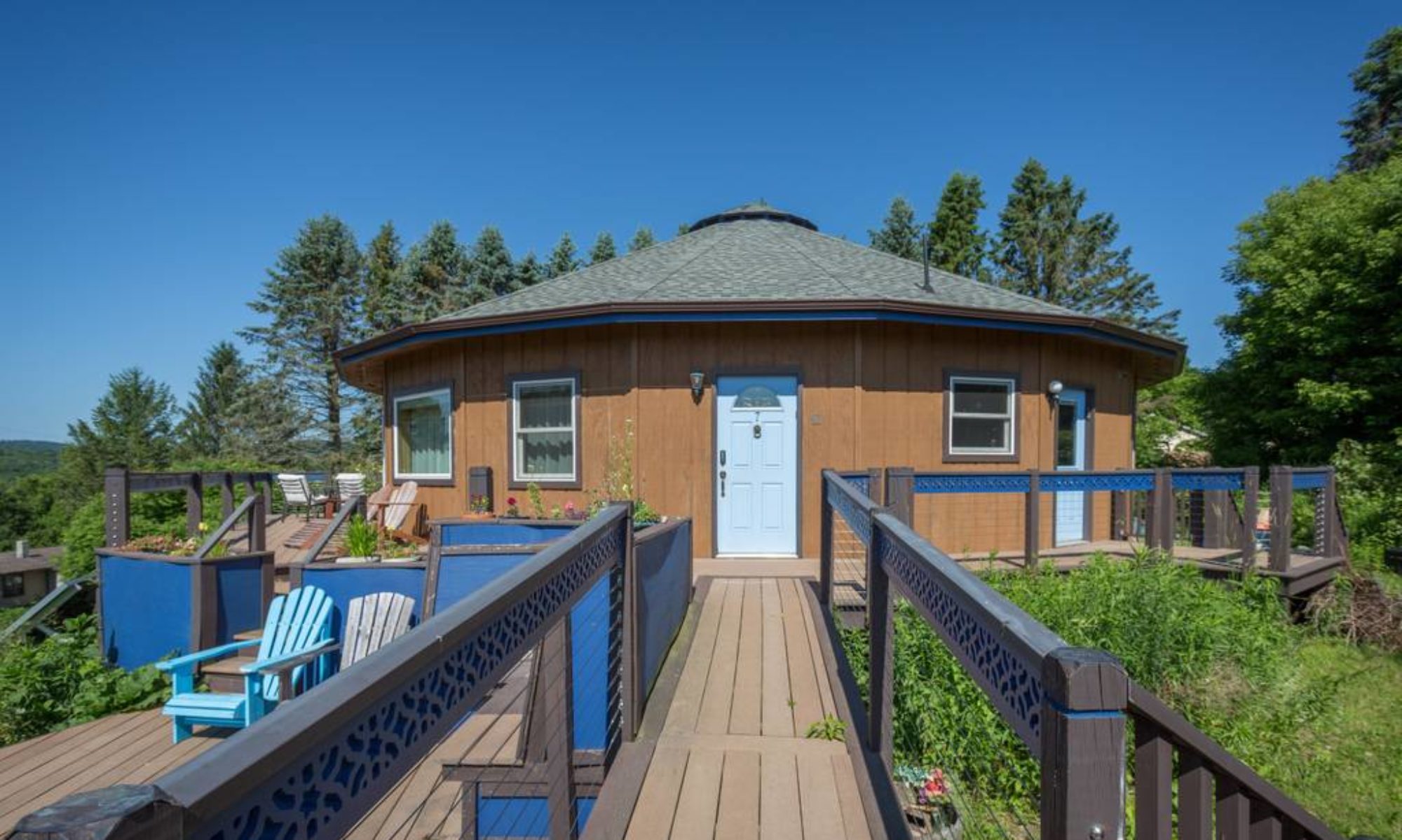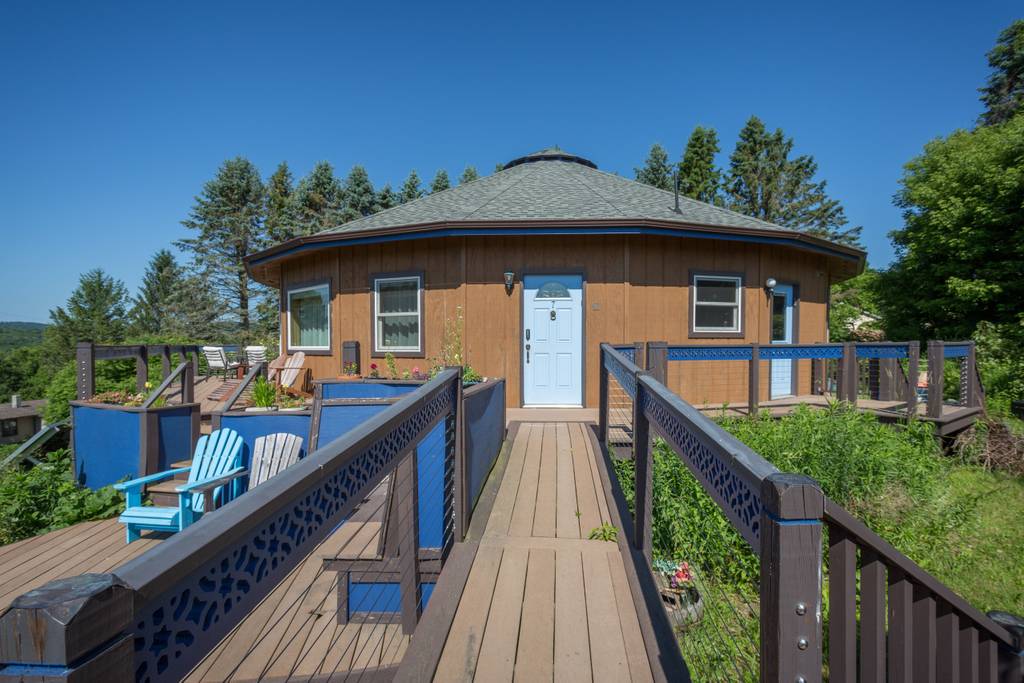Why Round? We built the Roundhouse of Millerton with sustainability, efficiency, and environmental impact at the forefront of all our decisions. We chose a home kit from Deltec Homes because a round design has a reduced footprint for maximum square footage, lower cost for heating and cooling, and is hurricane proof.
Our home was NYS Home Energy Star Rated in 2005 shown to have energy costs 60% less than the average home in NYS at that time. That rating helped with rebates to install a Solar Panel array to produce 100%+ of our energy needs. In fact, we have been getting a check back from the electric company every year! Since our Solar Panel system was installed in 2005 we have produced 65Mega Watts of clean energy.
A major highlight of living in our roundhouse is how energy efficient it is. When a cold wind blows, it just blows around, helping us minimal heat our home. The baseboard hot-water boiler averages just 500 gallons of heating fuel a year (2 fill ups of our tank). The home layout was also designed to maximize our southern exposure using passive solar heating to warm up our main living area. Plus every room has cathedral ceilings helping to keep it cool in the summer.
Every inch of the house was purposefully designed including the closets. Every closet and flat surfaced area has a built in conduit pipe into the basement which we’ve used to run a drip water irrigation system to planters as well as wired speakers around the house for an whole house entertainment system. Even the kitchen counter tops are locally made concrete using waste construction materials as filler. As a bonus is a 1600sqft dry basement ready for your creativity. Read below for more measures we took when constructing the Round House of Millerton.
Other environmentally focused features:
- Ultra Touch 100% Recycled Blue Jean Denim Insulation
- Synthetic Gypsum Board (100% recycled from waste materials)
- AFM Safecoat Non-toxic Biodegradable Paints
- Trex composite decking (50% recycled plastic, 50% saw dust)
- Terra Green recycled glass tiles
- Timber Trek/Timber Pro UV waterbased natural stain
- Locally grown and responsibly harvest pine floors
- Reclaimed ABS Drain Vent pipe
- FSC certified trim work baseboards
- EnergyStar rated Boiler and indirect water heater
- EnergyStar fans
- EnergyStar programmable thermostats
- Solatube sky tunnel
- Asko dishwasher 285 KwH/year
- Kenmore Refrigerator 392 KwH/year
- NO CARPETING (except in loft space, Reclaimed carpet and padding)
- 100% PVC free plumbing
- 100% LED/compact fluorescent lighting fixtures
- Roof structure pitch to allow insulation to extend over exterior wall joint
- Southern Exposure used for Passive Solar Heating
- Solar Panel Array to generate 100%+ electricity needs
- Reclaimed floor tiles
- Reclaimed bathroom sink
- Reclaimed doors
- Reclaimed shower basin
- Dual Flush Toilets
- Efficient shower heads
- Highest Rated Energy Efficient Marvin Integrity Windows, Argon filled, low-e
- Light and vent timers
- Separate heating zone
- Reclaimed wood paneling scraps used for closet ceilings
- Advanced Framing techniques reduced framing wood need by 30%
- Non-pesticide treated lawn you can literally eat from (dandelion, plantain, wood sorrel, mustard greens, chives, lamb’s quarters, fiddle-heads, elderberry bushes along entrance ramp, and sour cherry trees

